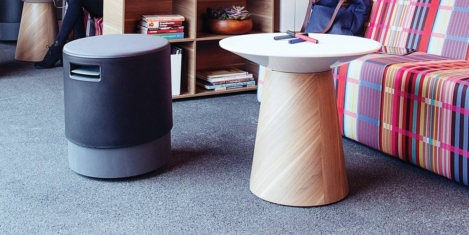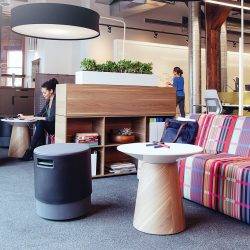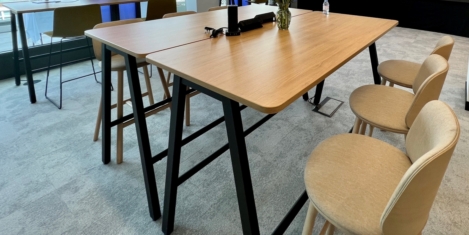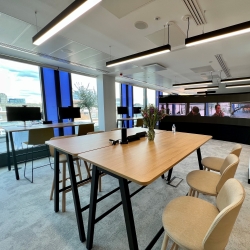November 27, 2023
From the archive: The role of workplace design in employee engagement 0
Originally published six years ago, this feature is currently the most read story ever on the website with around 50,000 readers. A global study by my own firm Steelcase has found that one-third of workers across 17 of the world’s most important economies are actually disengaged. The findings make worrying reading for employers around the world, as engagement is so demonstrably linked to business critical outcomes such as employee retention, productivity and even profits. It certainly raises the question of what more can be done, including in terms of workplace design, to boost engagement levels amongst these employees. (more…)












 Zoom has opened a new London ‘Engagement Hub’ which the firm claims will spearhead the shift from traditional office spaces to ‘experiential working hubs’. With the demand for hybrid working and remote capabilities giving rise to unconventional ways of operating, Zoom says it has designed its new office to support the changing nature of the employee experience, marking a new era of modern work.
Zoom has opened a new London ‘Engagement Hub’ which the firm claims will spearhead the shift from traditional office spaces to ‘experiential working hubs’. With the demand for hybrid working and remote capabilities giving rise to unconventional ways of operating, Zoom says it has designed its new office to support the changing nature of the employee experience, marking a new era of modern work. 
 Workforces need to evolve now more than ever.
Workforces need to evolve now more than ever. 






 A significant majority (85 percent) of employees feel like they are just a cog in the machinery of their organisation and 43 percent have no idea how their performance contributes to business success, according to a new survey of employee experience and expectations. According to the
A significant majority (85 percent) of employees feel like they are just a cog in the machinery of their organisation and 43 percent have no idea how their performance contributes to business success, according to a new survey of employee experience and expectations. According to the 











August 22, 2023
Advancing accessibility and reaping the rewards of disability inclusion
by Katy Talikowska • Comment, Facilities management, Workplace design